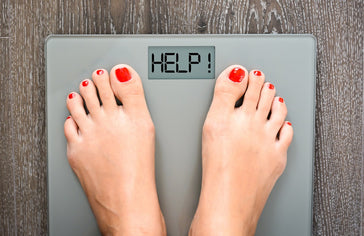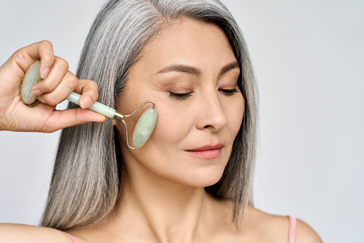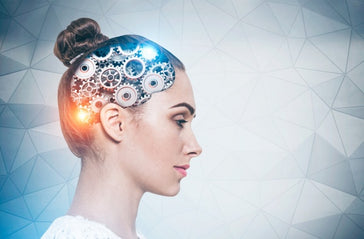Coffee - Who Can Drink It and Who Should Avoid It?
Posted by Mike Miryala on
Hey guys, it is Becky and I am back with another bonus video for you and today I'm going to be talking about Coffee. So, who can drink it, right? One day coffee is terrible for you. The next day you should drink coffee for a lasting life. Which one is it?
There is actual science behind why different people react to coffee in different ways. It's actually a matter of your genetics and how much coffee that you're drinking. Please note, coffee does not equal caffeine here. Okay, so don't get these two mixed up. I'm specifically talking about coffee.
Coffee is going to contain between 50 to 400 milligrams of caffeine per cup. That's a big average range, but there's a lot of different kind of coffees out there. So, for the sake of this conversation, average is going to be about 100 milligrams per cup. Coffee is one of the most popular ways to consume caffeine. A cup of coffee also contains a lot of other things such as antioxidants, lots and lots of other components, as well as caffeine. Okay, these are the reasons that this is not the same thing as taking an energy pill, taking a caffeine pill. A cup of coffee is going to contain a lot more things than just something like that.
Okay, let's talk about coffee metabolism. Caffeine metabolism, excuse me. This is something that I did not understand before. In college, I would be able to drink coffee, stay up. I could drink it at any time. I could drink it and then fall asleep. Then other times I drank it and I would stay up for hours. I didn't understand the whole caffeine metabolism type thing. Okay, but now that I'm older and I've studied a little bit more, I understand that I am a slow metabolizer of caffeine. So, what does that mean?
Not all people are going to metabolize this at the same speed or the same way. So, how fast you metabolize caffeine is going to impact how you're affected by the caffeine. For some people, it can be 40 times faster to metabolize caffeine than to not. Okay, so what does that mean? That basically means if you drink it now, for some people, it's going to work right away. You're going to be awake. These are the people that can get up in the morning, drink a cup of coffee and be like, okay, I'm ready to go. Other people like me, I'll drink coffee in the morning and I'm still dragging for a couple hours until, okay, it starts working. It starts moving. It starts giving me that energy that it promised.
About half of us are actually slow metabolizers of caffeine, which is me. Okay, so we can get jitters, heart palpitations, just feel weird for up to nine hours after having coffee. The other half of you guys are fast metabolizers of caffeine. So, you get energy, you get increased alertness, you're back to normal within a few hours. All right, so there's the split there in the middle and that's why some people say, oh, I love coffee. Some people say it does nothing for me. This is why. It all depends on how you metabolize it.
So, I want to talk about the effect of caffeine on your mind and on your body because there is an effect on both. Okay, so just note that for the study, most are looking at caffeine coffee, caffeinated coffee, not decaf. Okay, although there is some caffeine still in decaf, just FYI. The effects of coffee, aka caffeine, on the mind and body also differ between people. So, it's partly from the metabolism, like I mentioned before, but it also has to do with your body's ability to adapt.
Red, more tolerant. Your body becomes more tolerant to long-term caffeine use. That's what happened to me. All right, many people who start drinking coffee feel the effects a lot more than people who have coffee every day. So, if you are a coffee drinker every day, you may have noticed that one cup of coffee used to help you to be able to be more alert and then now you're up to two, three, four cups a day. All right, so someone who's never drank coffee before, who drinks coffee, they're gonna see a lot bigger difference in the way that affects them than someone who drinks it every single day.
A list of side effects that usually decrease with long-term use. Stimulation of the brain, boosting metabolism, boosting energy and exercise performance, increasing your stress hormone cortisol and dehydrating you. So, if you are someone who drinks coffee a lot, these are going to be the things that actually the effects will decrease as you drink more. So, yeah, so someone may say, oh coffee's so great for your brain and it helps to boost your metabolism and this is why you should drink coffee. Yes, all those things are true, but how long have you been drinking coffee? How much coffee do you drink and how often do you drink it? All of these things are going to factor in.
I want to touch just real quick on the health risk with coffee. So, I talked about the benefits a little bit, but there are a lot of studies on the health effects of coffee. So, whether coffee drinkers are more or less likely to get certain conditions. Please don't read into this and say that Becky said that you're going to get this because you drink coffee. Not what I said. I'm saying that you are possibly at a higher risk for getting some of these things if you are an extended coffee drinker. All right, you with me?
Okay, here's a quick summary. Caffeine addiction and withdrawal symptoms. You ever heard somebody say, I'd love to get off caffeine or I'd love to get off coke or love to get off coffee, but get headaches whenever I do. That's what I'm talking about. Okay, increased sleep disruption. Well, this would make sense, right? Especially if you're drinking coffee late, anytime past like two o'clock, three o'clock max. If you're drinking past then, you're probably interrupting your circadian rhythm.
But here's some benefits. Lower risk of Alzheimer's and Parkinson's. Lower risk of developing type 2 Diabetes, unless of course you are pouring sugar and cream and just like you have a little bit of coffee with your sugar and cream. That's how a lot of people do it here in Louisiana. You're doing that, probably not going to reduce your risk of type 2 Diabetes. Okay, lower risk of certain liver diseases, lower risk of death, possibly because you are more alert. So if you're driving and really sleepy and you're drinking coffee, it's going to help you to stay awake. Okay, so that one's like a really generalized one. Also mixed reviews on if it lowers risk of cancer and heart disease, verdicts still out on that.
So many of the health benefits exist even for decaf coffee, except for the caffeine addiction and the sleep issues. Probably don't have those with the decaf because you only have a little teeny tiny amount of caffeine in decaf. What is also super important to note here is that coffee intake is just one of the many, many factors that could affect your risk for these diseases. So don't look at this in a vacuum. It's not just all, you know, drink coffee and you won't get Parkinson's. It's not that simple. This is just talking about helping to reduce the risk. Please never think that regular coffee intake is the one thing that can help you overcome all these risks. You are health conscious and you know that eating a nutrient-rich whole foods diet, reducing your stress, getting enough sleep and exercise are all critical things to help with disease risk. Okay, not just about the coffee. If it was, boy, that'd be super simple, wouldn't it? I'd be passing out coffee to everybody to help reduce from these really debilitating things.
So should you drink it or should you not drink it? There are a few things to consider about if you should or not. Nobody drinking coffee, this is not going to make or break your health long term. Okay, this is not a black or white thing. It changes over time like we've talked about. It depends on how much you're drinking, when you're drinking it, how long you've been drinking it, how much you drink of it, all those factors. All right, but caffeinated coffee, just in general, is not recommended for people with arrhythmia. So if you have an irregular heartbeat already, probably not the best. People who feel anxious, this will make your anxiety worse. I can speak to this firsthand, okay? People who have trouble sleeping, you're probably a slow metabolizer of caffeine. You drink coffee when you think it's a safe time because it's earlier in the day and it takes a while for your caffeine to metabolize, interrupts your sleep.
People who are pregnant, children, and teens, okay? If none of these apply, then monitor how your body reacts when you have coffee. Do you get the jitters? Does your anxiety increase? I never realized that my anxiety increased until I really started to pay attention to it. Is your sleep affected? Does it give you heart palpitations? Does it affect your digestion, so like heartburn?
A lot of people sometimes will say, well, I didn't eat anything that should have given me heartburn, but you drank coffee. It could be the coffee. I know this does it to me as well. Also, does this just give you a reason to get in your cream and sugar every day? Is this some part of emotional eating for you that, you know, oh, I'm just drinking coffee, but you put all kinds of sugars and stuff in there? Is it serving a different purpose on an emotional side that may not be super healthy for you, okay?
So depending on how your body reacts, that's going to decide if you should drink coffee or not. I know you wanted me to give you a black and white answer. I can't give you a black and white answer because all of us are so different, but I can, however, give you a delicious recipe that you can make at home, and it's going to be amazing, all right? So this does not include coffee.
Just kidding. Of course, it includes coffee. All right, this is a Pumpkin Spice Latte. It's going to serve a one person, so if you are making this for more than one person, please add to the recipe. You're going to take:
- 3 Tablespoons of coconut milk, unsweetened please
- 1 to 1 ½ teaspoons of pumpkin pie spice or cinnamon (either one's fine)
- ¼ teaspoon of vanilla extract (pure please)
- 1 Tablespoon of pumpkin puree
- ½ teaspoon of maple syrup is optional. You could do stevia if you wanted. You could do erythritol if you wanted. You could do monk fruit if you wanted. You could do a combination of all of them if you wanted. Honey probably won't taste the same, but if you're not doing, you know, keto, then maple syrup will be fine.
- 1 cup of coffee (If you already know from this talk today how coffee is going to affect you, do either regular coffee or decaf coffee. Either one. One cup.)
You're going to put it all into a blender until it's nice and creamy. Then you go ahead and enjoy it. You can also use tea if you would prefer tea instead of coffee.
So I hope that this was helpful to you because there is so much noise out there in the health field. Everybody has scientific information to back up everything that they want. So if you want coffee to be healthy, google that and you'll find plenty of articles. If you want coffee to be unhealthy, google that and you'll get plenty of articles.
So hopefully today I was able to give you a checklist to look at. How does it feel in your body? How do you do when you drink coffee? When do you notice that you get your energy boost? Is it right away or is it a little bit later? All of these factors are going to go into whether you should drink coffee or not. I hope to see you in the Facebook group.
Let me know. Are you sticking with your coffee? Are you giving it the boot? I'll see you soon. Bye.





